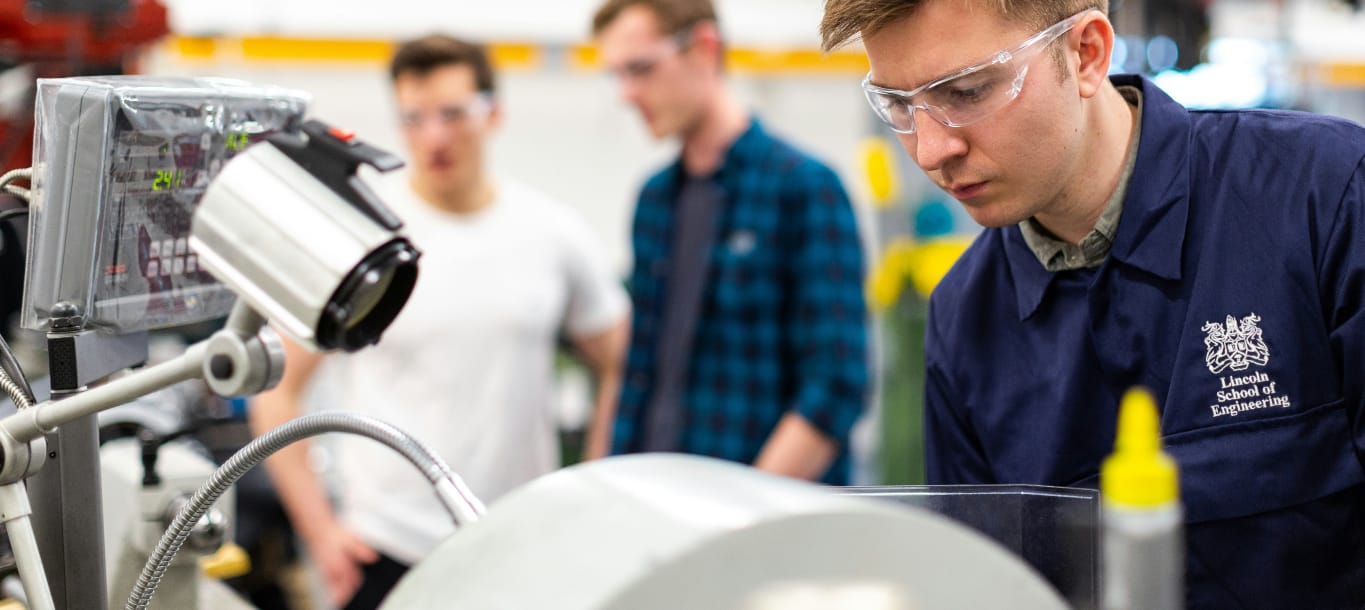Understanding physics apprenticeships
If you don’t know much about physics apprenticeships, here’s a brief overview. Apprenticeships are programmes which combine classroom learning with paid work experience. You’ll spend at least 20% of your apprenticeship studying towards a qualification, and the rest of the time working with an employer. At the end of your apprenticeship you’ll receive a qualification, and perhaps a full-time job with your employer.
Completing an apprenticeship offers a range of personal and professional benefits, including a fully-funded qualification, paid work and practical experience in your chosen field.
Engineering and technician apprenticeships are the most popular, but new physics apprenticeships are being developed everyday. There’s a new space systems engineering apprenticeship launching later this year, as well as an upcoming apprenticeship for NHS doctors.
Navigating the apprenticeship landscape
Qualifications and entry requirements:
Given that apprenticeships often last over a year, it’s worth taking the time to think about what sort of apprenticeship is right for you. Depending on your qualifications and experience, you can take an Intermediate (GCSE equivalent), Advanced (A-level), Higher (foundation degree and above) or Degree (undergraduate or master’s degree) apprenticeship.
The government is keen to not let qualifications stand in the way of students pursuing apprenticeships, as the only other criteria you’ll need is being 16 or over, living in the UK and not in full-time education. You can even complete a traineeship to prepare you for apprentice life, or complete core GCSEs (Maths, English) as part of your apprenticeship.
Choosing apprenticeship opportunities:
Now we’ve got the basics out of the way, it’s also worth considering what sort of physics apprenticeship you’d enjoy. Consider what subsector of physics (research, engineering) you’d like to work in, and what type of company you’d like to work for. Does the idea of working for a large, high-profile company appeal to you?
Within each company, consider the type of work they do, and whether their values align with yours. It’s also worth understanding how each company structures their apprenticeship, for example where you’ll complete the learning component, how much time you’ll spend in education and whether you’ll complete an assessment at the end.
Researching companies not only allows you to ensure that your apprenticeship is enjoyable, but also makes it easier for you to explain to companies why you’re interested in them, making you stand out from the crowd.
Here’s a few places you can find apprenticeship vacancies: England, Scotland, Wales, Northern Ireland, AllAboutSchoolLeavers, Planet Possibility
The classroom component:
You’ll spend at least 20% of your apprenticeship in education, which will take place at your employer, a dedicated training centre or even online. This part of your apprenticeship allows you to learn the theory that underpins your work. For example, the Acoustics Technician apprenticeship allows you to apply your knowledge of sound to improve acoustic issues. In lessons, these apprentices would learn about the science behind sound waves, and how they differ in varying scenarios (air vs water). They’d also discuss the varied sound problems faced by different buildings
Hands-on learning:
Hands-on learning, which makes up the majority of your apprenticeship, gives you the opportunity to put the theory you’ve learnt into practice. Just like a full-time role, apprentices get the chance to work on a diverse range of tasks and projects. Such practical experience is vital in solidifying your understanding and preparing you for future roles.
Returning to the example of the Acoustics Technician apprenticeship, these apprentices would apply the principles of sound they’ve learnt to solve real-life problems. In workshops, they’d learn how to test noise levels and analyse the resulting data, and how to fix sound issues quickly yet effectively.
Building a professional network:
The classroom and practical experience apprenticeships involve are a great opportunity for you to meet and network with experienced professionals. If there’s a colleague or lecturer whose work or teaching style you particularly admire, organise a time to get to know them further. Learning about someone else’s career journey may provide you with inspiration for your own.
Even if they’ve taken a completely different path than you, they’ll probably be able to share tips and tricks on how you can excel in your apprenticeship, and maybe even help you find a full-time role. You could even ask if a colleague would be willing to mentor you, an opportunity which would enhance your professional development even further.
Challenges and solutions in physics apprenticeships
It’s not uncommon to face challenges during your physics apprenticeship. You could struggle with your classes and how to maintain a work-life balance. Many apprentices find it difficult to adjust to the challenges of the working world, such as prioritising different tasks and dealing with difficult clients or colleagues.
The important thing to remember is that you’re not alone in this experience. Almost all employees have felt unsure about their work, or struggled to balance their personal and professional lives. The best thing to do is to be honest about how you’re feeling with someone, be that with the other apprentices or a trusted colleague. It’s also worth speaking to a senior apprentice, as they can share how they overcome tricky situations and periods. Try to remember these difficult feelings won’t last forever.
Completing a physics apprenticeship is a great way to gain theoretical knowledge and practical experience, which will help you prepare for the working world. Although a physics apprenticeship may be challenging at times, it’s also a great opportunity to receive a fully funded education and make exciting contributions to the field.
